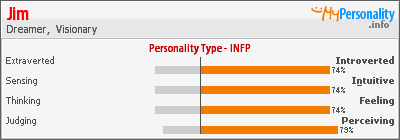I am actually old enough born just after the big war (WWII) to recall when the words, "under God" were added to the Pledge of Allegiance. The Congress added the phrase as a sort of finger in the air aimed at the Soviet Union. Frankly, I think it unlikely anyone in the Kremlin cared. But in terms of the politics of the McCarthy era it was hard I am sure to vote against. After all, the phrase of the day was, "atheistic communism." Looking back it is clear the authors of the phrase probably never read the "Acts of the Apostles."
It is true of course that Marx was an atheist or at least strongly opposed to the institution of the church and Judaism as he perceived them. And, it is also true he had at least some points. In his day, and for sometime later, the institutional church / synagogue was an instrument of the dominant society. Not so long ago, in America and England the Anglicans were describe as the conservative parties at prayer, the Roman Catholic bishops in Latin America were infamous for their participation in and justification of the suppression of Native Americans and the synagogues of Eastern Europe counseled acceptance of the violence by Christians (too often instigated by Christian clergy.) If I were writing in Marx's day I might have made similar points.
In our day, we teach that a good sermon should comfort the afflicted and afflict the comfortable. Not so in the nineteenth century.
Variant views of the church's relationship to the State has been a controversy for millennia. It has not been in any way a uniquely Christian question. The story of Akhenaten's reign and the rejection of his monotheism appears to be in large part the story of the interlaced support of the State and the priests. Saul and David both had issues with prophets. Hindu monarchs whose states had done well were violently hostile to followers of the Buddha. Among Christians effects of the relationship between the Roman bishops and French monarchs has never fully healed and France remains an officially and aggressively secular and indeed anti-clerical state to this day.
Here in Chicago, we tell the story of bishop Anderson preaching in the 1930's a fiery sermon against racism. He received a few days later a sharp note from a local steel company owner including the statement that he did not want to hear "Communist bullshit from my bishop." The bishop responded with a one sentence letter, "You and your money may go to hell." The descendants of the man remain a prominent family in the area and remain Roman Catholic.
Most recently Glen Beck denounced any church that preaches, 'social justice.' Of course that includes his own church (LDS,) Roman Catholics, Lutherans, Southern Baptists and a fair number of other conservative groups. I have never accused Mr. Beck of using his brain.
So the conflict persists. Should the faithful follow Nathan and cry "Justice" to power or should it support the powers that be.
In the States, we are left with the question is the United States a nation "under god" and if it is what does that mean? In England were being 'established' means more for a few privileged bishops than it does the laity or rank and file clergy, the question arises in different but similar ways.
To a devout, of course, any state, any institution is 'under god.' As the psalms proclaim for us, "The earth is yours and you made it!" To an atheist that is nonsense.
I wish an outbreak of sanity might hit Congress and the pledge could be revised. This is unlikely as the Congress is terrified of angry religious voters.
In fact, the state is secular, the rules of man, not of god (any god) are what we live by and that is a good thing in a pluralistic world. In fact those who scream the loudest about being a "Christian nation" neither know nor care about the history. What they are after is privilege for their views, not God's.
Every time I say the pledge I shudder a bit. And yet it is my country I am loyal to it and I am willing to affirm that. I just do not want to affirm loyalty to some indistinct and political image of god someone thinks I should consider a founding father.
FWIW
jimB
A series of essays and reflections. I try to write at least once and sometimes more each week. Opposing views are most welcome. This is a marketplace of ideas blog.
Provides a computer-generated, approximate translation.

Profile Information

- JimB
- I am an Anglo-catholic Episcoplain layman, a lay contemplative, a musician, and a completely doting grandfather. New slogan for the election cycle: Vote for Cthulhu -- don't settle for the lesser evil!
Blog Archive



1 comment:
Steve says, in person not in a comment:
There are other dimensions of the impact of the "Christian country" idea. If one adds the 'millenialist' view into the mix of errors, you get environmental indifference, militarism (someone has to fight Gog and Magog)and foreign adventure-ism.
FWIW
jimB
Post a Comment